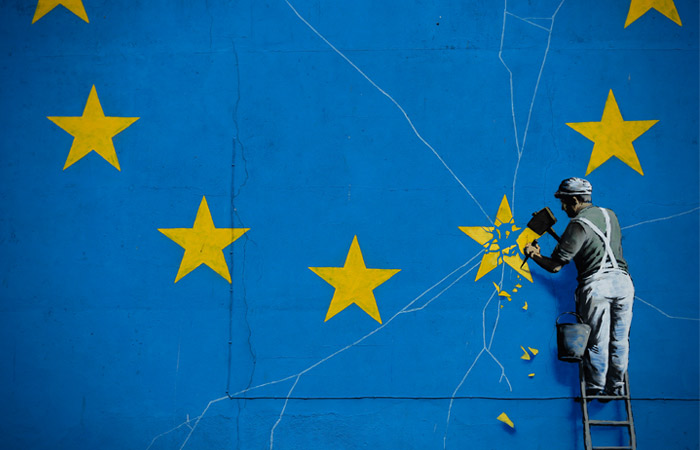Chairman of the Committee on Foreign Affairs Leonid Slutsky:
“The coronavirus pandemic has turned a united Europe into a de facto disconnected. There is not only the inability to jointly confront the common misfortune, but also the aggravation of existing and previously economic contradictions between the richer, northern, and troubled, southern, EU countries. They talked about the need for a new “Marshall Plan” to save the European economy. However, neither all the problems, nor humanitarian considerations, in any way bring down Brussels from the course of sanction pressure imposed on him by Washington on Russia.
Coronavirus can exacerbate disagreements already existing in Europe to such an extent that the EU risks falling apart. Such concerns were voiced, in particular, by the former Foreign Ministers of Germany, Joshka Fischer and Sigmar Gabriel. In their joint article in the Tagesspiegel newspaper, they stated that Europe needed two things: general assistance in a crisis and a general recovery program after a crisis. Fisher and Gabriel were also the first to insist on a new “Marshall Plan” to support EU countries – similar to the massive American cash infusion into the economy of post-war Europe.
Almost the same statements regarding the new “Marshall Plan” were made by the head of the European Commission, Ursula von der Leyen, but the very recent nightly vigils of the finance ministers of the EU member states (the Eurogroup) did not help to agree on the final text. The reason is the refusal of Germany, Austria, and the Netherlands from the idea of issuing special common “coronobond”, with the help of which 9 southern European countries, primarily Italy, hope to mitigate the blow from the crisis caused by the pandemic. They warn that the EU may simply not survive if Berlin and other capitals of the “north” refuse to make concessions. “Everything will collapse,” said Italian Foreign Minister Luigi Di Mayo. Negotiations will continue on Thursday. At stake is € 540 billion.
It would seem that in this dramatic situation, the EU countries should not worry more than pandemic and economic issues. But no. The “anti-Russian component” in pan-European politics remains unchanged. Despite the fact that Italy and the business community of many other EU countries have repeatedly called for the abolition of anti-Russian restrictions, Brussels remains committed to this counterproductive line. The group of deputies of the European Parliament demanded in a letter to the European Commission “to prevent the lifting of sanctions against Russia under the pretext of combating the coronavirus pandemic.” EC official spokesman Peter Stano assured in response that the EU leadership does not see problems in maintaining sanctions against Russia, since they “do not undermine the ability of the Russian Federation to fight the coronavirus.” It turns out that the war with the COVID-19 war, and the sanctions are still the same – on a schedule. Will the EU be able to maintain unity (above all, consensus) on this issue – wait and see. ”


